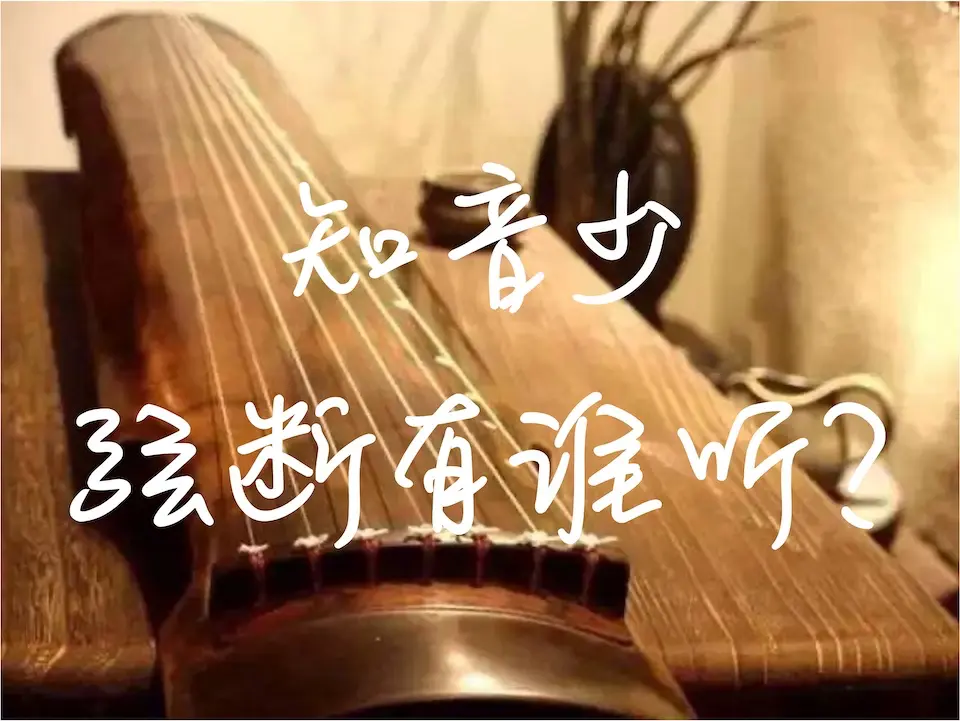《小重山》- 岳飞

Translate Small hills to English
《小重山》中译英

《小重山》Small hills
昨夜寒蛩不住鸣。
惊回千里梦,已三更。
起来独自绕阶行。
人悄悄,帘外月胧明。
白首为功名。
旧山松竹老,阻归程。
欲将心事付瑶琴。
知音少,弦断有谁听?
Last night kept on chirping the autumn cricket.
Startled, I woke up from a dream of home thousands miles away, it was midnight already.
I got up wandering around the steps,
It was quiet, and out of the curtain, the moon was hazily shining.
My hair greyed for pursuit of fame and merit.
The pines and bamboos on the ancient mountains aged, hindering my homeward journey.
I wished to confide my mind via chords.
But soul mates were rare. Even I played till the chords broke, who would be listening?
作者和背景 Author and background
这首词的作者是岳飞(1103年3月24日-1142年1月28日),字鹏举,是中国南宋时期著名的军事将领。他在12世纪率领南宋军队与金朝进行战争,被尊崇为中国的民族英雄。然而,在1142年,他被南宋政府错误地指控并处决,而南宋政府此时已经与金朝达成和平协议。
The author of this poem, Yue Fei (March 24, 1103 - January 28, 1142), with the courtesy name Pengju, was a famous Chinese military general who lived during the Southern Song dynasty. He is revered as a national hero in China. Yue Fei led the Southern Song army in wars against the Jin dynasty in the 12th century. However, in 1142, he was falsely accused and executed by the Southern Song government, which had already reached a peace agreement with the Jurchen-led Jin dynasty.
这首词的背景如下:岳飞于北宋宣和四年(1122年)参军,北宋灭亡前的四年里,他在宗泽将军的指挥下与金朝英勇作战。自那时起,他致力于反金运动。从1136年到1137年,他不断指挥军队收复了黄河以南的大片领土,形成了坚实的反金阵线。他正准备发起一次重大的战役,以夺回中原地区并消灭金朝。
The background of this poem is as follows: Yue Fei joined the army in the fourth year of the Xuanhe period of the Northern Song dynasty (1122). In the four years leading up to the downfall of the Northern Song, he fought bravely under the command of General Zongze in the war against the Jin dynasty. Since then, he dedicated himself to the anti-Jin campaign. From 1136 to 1137, he continuously commanded the army to recover a large area of territory south of the Yellow River, forming a solid anti-Jin front line. He was preparing to launch a major campaign to recover the Central Plains and annihilate the Jin dynasty.
然而,在这个关键时刻,宋高宗赵构任命秦桧为宰相,他强烈主张妥协和和平,阻止了反金的努力并迫害主战派。当时,秦桧不敢对岳飞采取行动,但他强烈反对岳飞继续与金朝交战。
However, at this critical moment, Emperor Gaozong of Song, Zhao Gou, appointed Qin Hui, who was strongly in favor of compromising and making peace, as the prime minister, halting the anti-Jin efforts and persecuting the advocates of war. At that time, Qin Hui did not dare to take action against Yue Fei, but he strongly opposed Yue Fei from engaging in further battles against the Jin dynasty.
岳飞主张抵抗金朝并夺回失地,但朝廷和百姓一致呼吁议和,使得作者无法表达自己的声音。反金事业的有利局势岌岌可危,作者不禁为国家的未来和命运感到担忧和沉重。这首词就是在这种环境和情感下写成的。
Yue Fei advocates resisting the Jin dynasty and reclaiming lost territory, but there was a unanimous call for peace from the court and the people, leaving the author in a situation where he was unable to make his voice heard. The favorable situation for the anti-Jin cause was in danger of being wasted, and the author couldn't help but worry about the future and destiny of the country, feeling heavy-hearted. The poem was written in such circumstances and with such feelings.
这首诗描绘了作者夜不能寐,醒来后在沉重的心情下独自走在台阶上的情景。它用找不到音乐琴声知音来隐喻找不到收复失地的共鸣者,表达了作者的沮丧和孤立感。作者爱国的目标难以实现,找到一个能理解和分享他的雄心壮志的人很困难,导致他内心感到沮丧和悲伤。
The poem depicts the author's restless nights, waking up in the late hours, and walking alone on the steps with a suppressed mood. It expresses the author's frustrated aspirations and feelings of isolation, using the metaphor of not being able to find a sympathetic listener of his music for his desired recovery of lost territory. The author's patriotic ambitious goals are hard to achieve, and finding someone who understands and shares his ambition is difficult, resulting in a sense of frustration and sorrow in his heart.
这首诗采用了著名的善于操琴的俞伯牙和善于聆听的知音锺子期的典故,用于象征作者内心深处的怨愤和难以言表的悲伤,传达了一种沉郁悲怆的情怀。
The poem employs the well-known story of Yu Boya, skilled in playing the Guqin, and his understanding listener, Zhong Ziqi, to symbolize the author's deep-seated resentment and the inexpressible grief he feels, conveying a sense of melancholy and despair.
Unique feature 独特功能
Click the language icon on the side tools can hide/show the contents of corresponding language.
点击上面侧边工具栏中语言图标,可以隐藏/显示相应语言的内容。
Clicca sull’icona della lingua sugli strumenti laterali è possibile nascondere/mostrare i contenuti della lingua corrispondente.
Cliquer sur l’icône de la langue sur les outils latéraux permet de masquer/afficher le contenu de la langue correspondante.
- Post title: 《小重山》- 岳飞
- Create time: 2023-06-26 12:00:00
- Post link: 2023/06/26/20230626-small-hills/
- Copyright notice: All articles in this blog are licensed under BY-NC-SA 4.0 unless stating additionally.
Comments